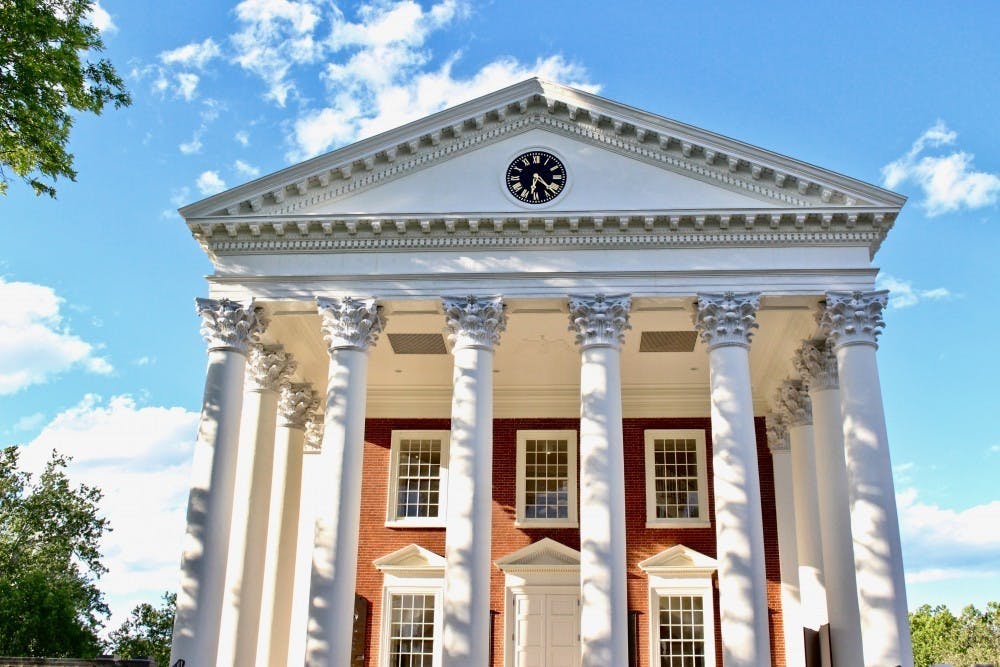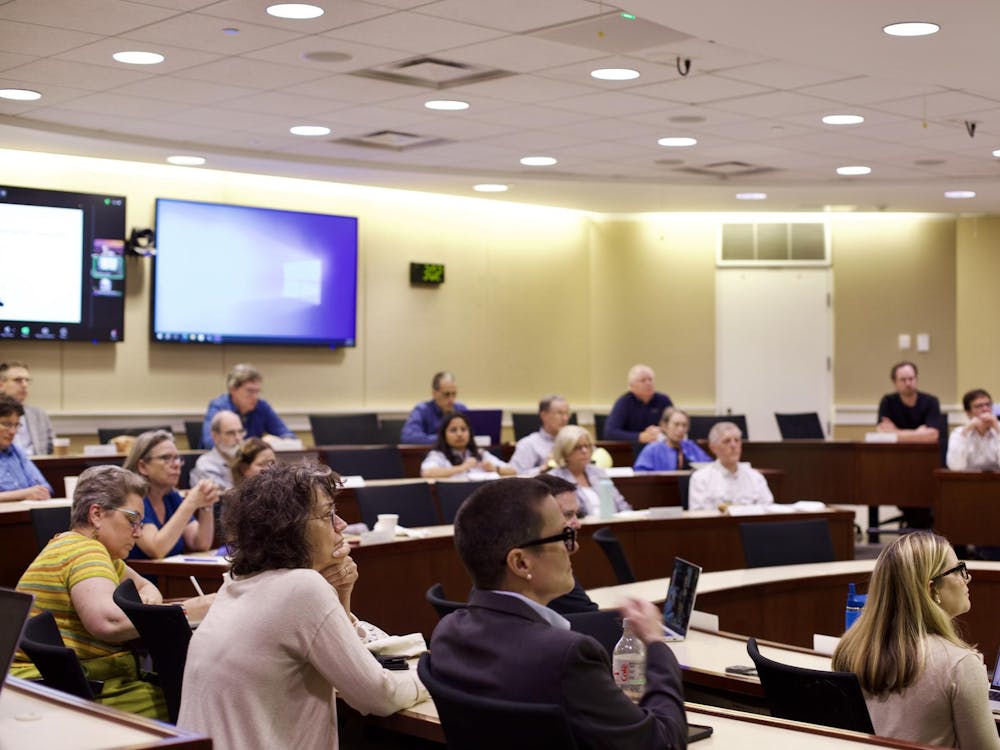All students will be required to submit a self-administered COVID-19 viral PCR test before receiving clearance to return to Grounds, the University announced Thursday as it prepares to bring students back for fall classes next month. Mandatory testing is just one of the University’s several public health measures, including virtual daily health checks and requiring all students to wear masks in public spaces.
Free COVID-19 test kits will be delivered by mail to students who request it from a third-party vendor contracted by the University. A PCR test — also known as a nasal swab — is designed to detect the presence of virus antigens in an infected individual.
Tests must be sent to the lab no fewer than seven days before returning to Grounds, and results will be available within 24-48 hours after the lab receives the sample. A negative test is required for students to return to Grounds.
“The information we share today is comprehensive, but its message is simple: Tackling COVID-19 is a challenge, but we will have a successful return to Grounds if we pull together and take the individual steps necessary to keep ourselves and the people around us safe,” Provost Liz Magill and Chief Operating Officer J.J. Davis said in announcing the plan details.
Students who test positive for COVID-19 are to self-isolate at home and will not be cleared to return to Charlottesville until they complete 10 days of mandatory self-isolation.
In addition to mandatory testing, all students are strongly recommended to self-quarantine for 14 days prior to returning to Grounds. The CDC reports that COVID-19 symptoms emerge anytime between two to 14 days after exposure to the virus. Those who develop symptoms suggestive of COVID-19 while on Grounds will be urged to immediately get tested and self-isolate while waiting for the results. Asymptomatic testing will only be available from the University once every sixty days, unless otherwise authorized.
“This plan is the product of months of work by University experts in medicine and public health, and it reflects the latest state and federal guidance for higher education,” Magill and Davis wrote.
In the event of an outbreak on Grounds, the University will expand testing to those who have been in the same area as identified infected community members. Students who live in on-Grounds housing and test positive for COVID-19 will be isolated, though the University has not yet released its plan on how this process will occur.
“The University is considering several strategies to detect possible COVID-19 outbreaks including testing the wastewater in certain University buildings or residences, and conducting random tests of people in a particular area of the University,” Magill and Davis wrote.
Additionally, all students, faculty and staff will be required to report their symptoms — or lack of symptoms — daily via the yet-to-be-released “HOOS Health Check” app or by email. The University will provide an update on the app by mid-August, according to the announcement.
Social Distancing and Sanitation
As previously announced, every student will receive two cloth face coverings, two 2-ounce containers of hand sanitizer and a touch-tool from the University upon their arrival. Employees in the academic division will also be receiving two cloth face coverings.
The University will also be installing 2,600 hand sanitizer stations in high traffic common areas.
“Facilities Management has trained custodial staff on new enhanced cleaning protocols based on industry standards and best practice guidelines from the Centers for Disease Control to keep spaces around the University as clean and disinfected as possible,” Magill and Davis wrote.
In addition, bus drivers and passengers with University Transit Services will be required to wear a mask at all times. Capacity on the buses will be dropped from 50 riders to 20, and service hours will be altered to allow enhanced cleaning of vehicles. Students who return to Grounds will also be encouraged to socially distance themselves in classrooms, dining halls, lounges, labs and other communal facilities. Buffet style service in dining halls will be eliminated.
“Every person who studies, works, or visits U.Va. Grounds will be required to wear face coverings and observe strict physical distancing procedures,” Magill and Davis said in their email to the U.Va community.
On Tuesday, Dean of Students Allen Groves criticized students who gathered in large numbers at bars, off-Grounds residences and fraternity houses as part of last week’s midsummers celebrations — a gathering of U.Va. students approximately midway through the summer break.
“Failing to follow basic rules about health and safety will also cause increased cases in our community and result in an overwhelming of our healthcare system,” Groves wrote in an email to students.
The same celebrations also drew ire from Charlottesville Mayor Nikuyah Walker, who called the plan to allow students to return to Grounds “a recipe for disaster.” Others have criticized the University’s decision to have in-person classes for putting community members at greater risk for exposure to the virus.
Classes are scheduled to start Aug. 25 and in-person instruction will end by Thanksgiving.







